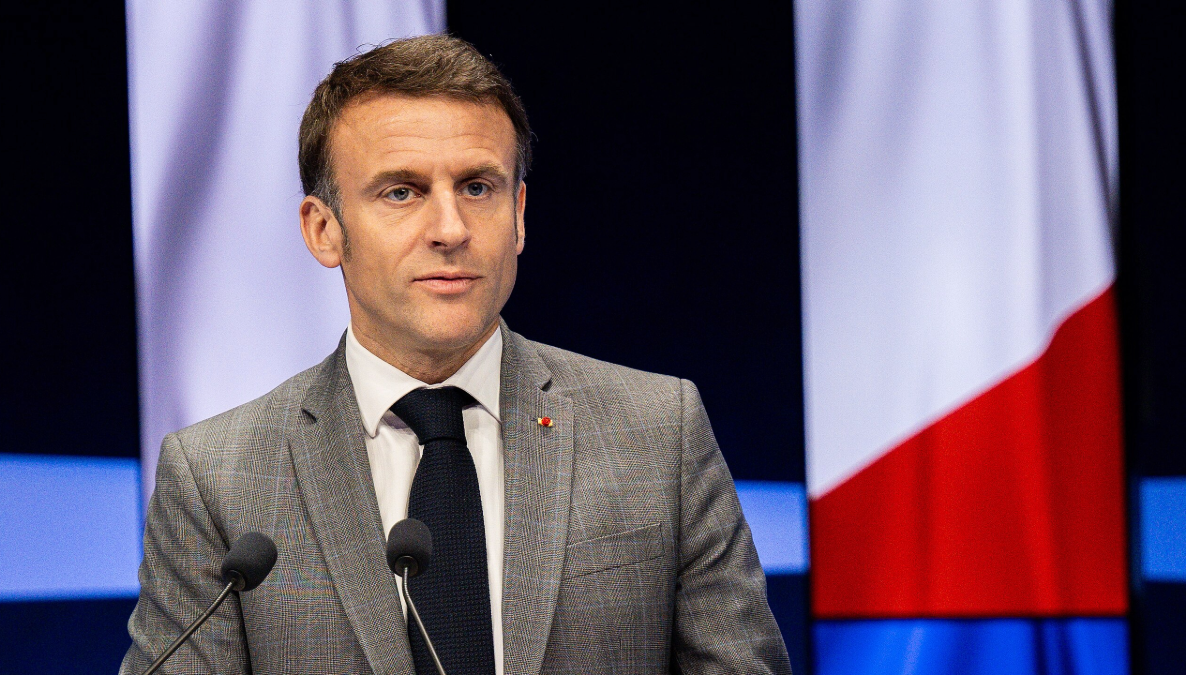The Paris AI Action Summit: A Pivotal Moment to Reclaim AI from Big Tech
Max von Thun, Michelle Nie / Jan 28, 2025
French President Emmanuel Macron, photographed here in March 2024, will host the AI Action Summit at the Grand Palais in Paris on February 10-11, 2025.
Early next month, the French government will host its AI Action Summit in Paris. Building on a series of safety-focused convenings in the UK and South Korea, the French Summit takes a broader perspective on AI. It aims to “deliver the critical public goods needed to align AI with the public interest.” However, the summit will fail to achieve this goal unless it tackles the elephant in the room – Big Tech’s growing dominance over the AI ecosystem and its creeping capture of AI governance, now increasingly backed by the might of the United States government.
The dominance of Big Tech in the AI ecosystem is already deeply entrenched. The cloud hyperscalers – Amazon, Google, and Microsoft – control two-thirds of the market for cloud computing, a critical input for training and operating AI models. Big Tech has actual or de facto control over most of the leading frontier AI labs, including OpenAI, Anthropic, DeepMind, and Mistral. Nvidia and TSMC hold monopolies over the design and manufacturing of advanced AI chips. Beyond this core infrastructure, the tech giants also control the majority of the commercial gateways used by most individuals and organizations to access AI systems, including smartphones, operating systems, browsers, and search engines.
This concentration of power extends beyond the private sector. Governments themselves are becoming increasingly dependent on tech monopolies for core services and infrastructure. They are shifting more and more of their operations, from public education and healthcare to defense and policing, into the cloud. And they are adopting Big Tech’s AI solutions across the public sector, with the UK government recently announcing plans to “mainline AI into the veins of the nation.”
Just as worryingly, policymakers are outsourcing the development of AI policy to corporations that profit from AI technologies themselves. Big Tech’s fingerprints are all over AI policy, from working groups for the EU AI Act Code of Practice to advising on national AI strategies, including the French government’s latest “notre ambition.” Policymakers have been far too eager to embrace these corporations as benevolent sources of expertise and innovation while ignoring or downplaying the risks of letting the foxes guard the regulatory henhouse.
This influence shows no signs of subsiding at the upcoming Summit, where the tech giants – and their de facto subsidiaries – are set to be present and prominent throughout the entire event. The guest list is expected to include the familiar tech giants, as well as the top AI companies, such as OpenAI, Anthropic, Google DeepMind, and Mistral. Without a sustained effort to recognize and remedy the problematic power dynamics created by this imbalance, the Summit risks legitimizing self-interested industry narratives and failing to put forward a credible alternative.
Instead of falling into this trap, leaders assembling in Paris should use the Summit as an opportunity to address head-on Big Tech’s growing influence over the AI industry and its governance. That means hosting critical discussions on AI concentration and its relationship to the Summit’s main themes, centered on independent voices from academia, civil society, and the public sector. From public interest AI and the future of work to global governance, trust, culture, and innovation (the Summit’s themes), the societal impact of AI – including the distribution of its benefits and costs – will be shaped by the interests and incentives of the handful of corporations that today control the technology.
Moreover, while the Summit is intended to be global rather than regional or national in scope, it is impossible and unwise to ignore the current geopolitical context. France and Europe – where the Summit is taking place – and many other parts of the world risk becoming even more dependent on a handful of US tech monopolies for critical digital infrastructure and AI services. These dependencies prevent nations from fully capturing the benefits of AI for their own economies and citizens while exposing them to coercion and manipulation by Big Tech and the US government, whose merging has been expedited by Donald Trump’s return to the presidency.
Elon Musk’s capture of the White House aside, the US Congress is already pushing a new "Manhattan Project" for advanced AI; OpenAI, Anthropic, and Meta are working with the US military on AI applications; and tech billionaires including Sam Altman, Jeff Bezos, and Mark Zuckerberg donated to President Trump’s inauguration fund and overhauled their companies’ policies in deference to the MAGA movement. While these overtures may not completely shield the platforms from regulatory scrutiny in the US itself, Trump, Vice President JD Vance, and other leading Republicans have threatened to punish Europe for daring to regulate Big Tech. Without taking urgent steps to address their tech dependencies, Europe and other regions will have limited ability to withstand the bullying.
The societal and economic consequences of failing to rein in Big Tech’s AI dominance will be grave. Far from promoting the public interest, their market power will undermine it – leveraging AI to turbocharge intrusive surveillance, algorithmic manipulation, and extractive exploitation of journalistic and artistic content – all for the purpose of funneling more cash to shareholders. Furthermore, the tech giants’ walled gardens and anti-competitive practices will make it close to impossible for innovators to break into and scale up in the AI market, as it already is in many parts of the digital economy.
While it’s welcome that the Summit organizers have recognized the need to discuss market competition, Big Tech's suffocating dominance can’t just be relegated to a side conversation – it must be at the heart of the overall debate. That doesn’t mean succumbing to doom and gloom; the Summit presents a historic opportunity to chart a different course, one where AI promotes the interests of citizens, not just those of monopolistic corporations. After all, if the Summit is about “action” and not just talk, there are few more urgent actions for us today than breaking once and for all the grip of the tech titans on our collective futures.
Authors

